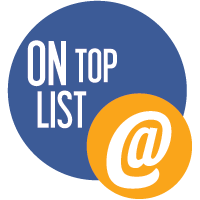“Your complaint is that the humans are being too accommodating?” Second Grandmother asked in slow careful tones.
Quilx’tch squirmed and for the first time in his life wished it was polite to interject before she had finished her thought, or at least before the room had processed the false thread.
“No, no,” he said quickly. “It is not, not really a complaint at all. Just an observation of behavior that might raise some ethical concerns. Or perhaps not ethical, but experimentally relevant concerns about using humans as test subjects.”
The Shatar gave a thoughtful click and the bipedal shape of leaves and sticks prodded meaningfully at the display shared with the Shatar.
“Perhaps if you told us in a more natural flow than this report,” the Shatar suggested.
Quilx’tch settled back on his hind paws and waved a gripping paw in agreement as he gathered his threads.
“I have been running several active experiments on human cooking behavior,” he said. “I have mostly focused on the use of tools to mitigate the dangers of burns during daily meal preparation. This necessitated, in order to control for variables you know, having the humans come to the same communal area to prepare one meal a day rather than preparing it in their own habitations. As the study progressed I noticed that the humans were quite enjoying the study, something I naturally attributed to the social gathering aspect of a shared goal-”
The Gathering rustled up to what Quilx’tch assumed was a postural request for attention and Quilx’tch fell silent and turned his body towards the Gathering’s center of mass, stamping down a bit of irritation at the interruption.
“Social make happy sure?” the Gathering slurred out.
The Shatar cocked her antenna towards Quilx’tch in what he knew to be an offer to explain and he waved a paw at her gratefully.
“Every species except the Gathering finds social action more pleasant than solitary action,” she explained.
“As a general rule,” Quilx’tch supplied when she had indicated she was done. “Humans especially do have a desire for periods of solitude but as a whole are more cheerful in social situations.”
The Gathering hummed in what Quilx’tch took to be understanding and settled back down to a listening posture.
“It came to my attention,” Quilx’tch continued, “that the communal space camera recordings were available for perusal and thinking I might get some good data on dietary habits between planned meals and spontaneous meals I took a look at the recordings.”
“This was when you noted that the humans were happier when they were helping you with your experiment than when simply preparing meals in a social area?” The Shatar asked.
Quilx’tch gave a click of confirmation.
“I noted intensity and frequency of smiles,” Quilx’tch said, “general energy of movements, and emotive vocalizations. All increased, especially the vocalizations in the group that knew they were assisting with my study.”
The Gathering gave a gurgling attempt at speech and the Shatar translated.
“What were these emotive vocalizations you observed?” she asked.
“I have organized them into clusters of, um, huh, and mammal lung sounds one through six with decimal subset,” Quilx’tch said. “They appear to be closest in nature to fragments of attempted song. I have heard other humans refer to them as ‘happy little noises’ and they are generally treated as indicators of well being. They are less likely to manifest when humans are together, occurring mostly when an individual human is alone.”
Quilx’tch could tell when the oddity finally struck the Shatar. Her antennae curled down with interest and internalized thought as she pondered his words. The Gathering gave an opinionated shuffle and the Shatar tilted her head in cautious agreement.
“Fragments Every Argument has a point,” she said. “Individuals of every social species experiences some pleasure response when helping another individual.”
“Yes!” Quilx’tch said, perhaps a little quicker than was quite polite. “I am quite accustomed to that response. It is strongest when a human is able to feed a friend. I have tasted that pleasure response more frequently than I can record. This is different. More abstract.”
The Gathering, (Fragments Every Argument Quilx’tch reminded himself) managed to gurgle out a word with enough tone to indicate a question.
“Ask?”
“I have asked them what the source of their enjoyment was,” Quilx’tch admitted. “Most simply stated that they did not know, two claimed that they were happy to be helpful, one, and this is what concerns me, said that he was just excited to be part of a real science experiment.”
That stuck the thought thread home Quilx’tch could see. The Shatar’s frills stiffened with attention, the Gathering gave up any pretense of maintaining a bipedal form and dropped into a pile.
“This might be a manifestation of that odd, nearly religious reverence they reportedly have for perceived scientific endeavor,” the Shatar murmured, “the one noted by the early first contact general anthropologists.”
Fragments Every Argument gave a series of rapid clicks and the Shatar responded more slowly.
“Yes, it might be some combination of the natural delight in being useful, social participation, and the reverence towards perceived science.”
Quilx’tch started quickly taking notes. There was more than a web of good ideas in what they were saying. If humans did have some base quirk of personality that made them pleased with being the subject of scientific observation it could have long term repercussions on all the scientific fields, the scientist to first describe it properly would certainly have woven his place in the web.








 RSS Feed
RSS Feed


